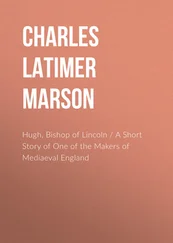Paul Vinogradoff - Villainage in England - Essays in English Mediaeval History
Здесь есть возможность читать онлайн «Paul Vinogradoff - Villainage in England - Essays in English Mediaeval History» — ознакомительный отрывок электронной книги совершенно бесплатно, а после прочтения отрывка купить полную версию. В некоторых случаях можно слушать аудио, скачать через торрент в формате fb2 и присутствует краткое содержание. Жанр: foreign_prose, Юриспруденция, История, foreign_edu, foreign_antique, на английском языке. Описание произведения, (предисловие) а так же отзывы посетителей доступны на портале библиотеки ЛибКат.
- Название:Villainage in England: Essays in English Mediaeval History
- Автор:
- Жанр:
- Год:неизвестен
- ISBN:нет данных
- Рейтинг книги:4 / 5. Голосов: 1
-
Избранное:Добавить в избранное
- Отзывы:
-
Ваша оценка:
- 80
- 1
- 2
- 3
- 4
- 5
Villainage in England: Essays in English Mediaeval History: краткое содержание, описание и аннотация
Предлагаем к чтению аннотацию, описание, краткое содержание или предисловие (зависит от того, что написал сам автор книги «Villainage in England: Essays in English Mediaeval History»). Если вы не нашли необходимую информацию о книге — напишите в комментариях, мы постараемся отыскать её.
Villainage in England: Essays in English Mediaeval History — читать онлайн ознакомительный отрывок
Ниже представлен текст книги, разбитый по страницам. Система сохранения места последней прочитанной страницы, позволяет с удобством читать онлайн бесплатно книгу «Villainage in England: Essays in English Mediaeval History», без необходимости каждый раз заново искать на чём Вы остановились. Поставьте закладку, и сможете в любой момент перейти на страницу, на которой закончили чтение.
Интервал:
Закладка:
51
Y.B. Trin. 9 Edw. II, f. 294: 'Le manoir de H. fuit en ascun temps en la seisine Hubert nostre ael, a quel manoir cest vileyn est regardant.'
52
Y.B. Trin. 29 Edw. III, f. 41. For the report of this case and the corresponding entry in the Common Pleas Roll, see Appendix II. Конец ознакомительного фрагмента. Текст предоставлен ООО «ЛитРес». Прочитайте эту книгу целиком, купив полную легальную версию на ЛитРес. Безопасно оплатить книгу можно банковской картой Visa, MasterCard, Maestro, со счета мобильного телефона, с платежного терминала, в салоне МТС или Связной, через PayPal, WebMoney, Яндекс.Деньги, QIWI Кошелек, бонусными картами или другим удобным Вам способом.
53
Cf. Annals of Dunstaple, Ann. Mon. iii. 371: 'Quia astrarius eius fuit,' in the sense of a person living on one's land.
54
Bracton, f. 267, b.
55
Bract. Note-book, pl. 230, 951, 988. Cf. Spelman, Gloss. v. astrarius. Kentish Custumal, Statutes of the Realm, i. 224. Fleta has it once in the sense of the Anglo-Saxon heorð-fæst, i. cap. 47, § 10 (f. 62).
56
Bracton, f. 190.
57
Littleton, sect. 187. Cf. Fortescue, 'De laudibus legum Angliae,' c. 42.
58
Littleton, sect. 188.
59
Bracton, ff. 5, 193, b.
60
I need not say that there were very notable variations in the history of the Roman rule itself (cf. for instance, Puchta, Institutionen, § 211), but these do not concern us, as we are taking the Roman doctrine as broadly as it was taken by medieval lawyers.
61
Mater certa est. Gai. Inst. i. 82.
62
See Fitz. Abr. Villenage, pl. 5 (43 Edw. III): 'Ou il allege bastardise pur ceo qe si son auncestor fuit bastard il ne puit estre villein, sinon par connusance.' There was a special reason for turning the tables in favour of bastardy, which is hinted at in this case. The bastard's parents could not be produced against a bastard. He had no father, and his mother would be no proof against him because she was a woman [Fitz. Abr. Vill. 37 (13 Edw. I), Par ce qe la feme ne puit estre admise pur prove par lour fraylte et ausi cest qi est demaunde est pluiz digne person qe un feme]. It followed strictly that he could be a villain by confession, but not by birth. The fact is a good instance of the insoluble contradictions in which feudal law sometimes involved itself.
63
Bracton, f. 5: 'Servus ratione qui se copulaverit villanae in villenagio constitutae.' Bract. Note-book, 1839: 'Juratores dicunt quod predictus Aluredus habuit duos fratres Hugonem [medium] medio tempore natum et Gilibertum postnatum qui nunc petit, set Hugo cepit quamdam terram in uillenagio et duxit uxorem [uillanam] et in uillenagio illo procreauit quemdam filium qui ad huc superest.... Et bene dicunt quod … iste Gilibertus propinquior heres eius est, ea racione quod filius Hugonis genitus fuit in uillenagio.'
64
Y.B. 30/31 Edw. I, p. 167 sqq.: 'Usage de Cornwall est cecy qe la ou neyfe deyt estre marier hors de maner ou ele est reseant, qe ele trovera seurte … de revenir a son ny ov ses chateux apres la mort de son baroun.' Bracton, f. 26, 'Quasi avis in nido.'
65
Bract. Note-book, pl. 702: 'Nota quod libera femina maritata uillano non recuperat partem alicuius hereditatis quamdiu uillanus uixerit.'
66
Bract. Note-book, pl. 1837: 'Nota quod mulier que est libera uel in statu libero saltem ad minus non debet disseisiri quin recuperare possit per assisam quamuis nupta fuerit uillano set hereditatem petere non poterit.' Bract. Note-book, pl. 1010: 'Et uillani mori poterunt per quod predicte sorores petere possint ius suum.' Fitzherb. Villen. 27 (P. 7 Edw. II.): 'Les femmes sont sans recouverie vers le seignior uiuant leur barons pur ce que ils sont villens.' Cf. Bracton, f. 202.
67
Another instance of the influence of marriage on the condition of contracting parties is afforded by the enfranchisement of the wife in certain cases. The common law was, however, by no means settled as to this point. Y.B. 30/31 Edw. I, p. 167 sqq.: 'La ou le seygnur espouse sa neyfe, si est enfranchi pur toz jurs; secus est la ou un homme estrange ly espose, qe donk nest ele enfraunchi si non vivant son baroun, et post mortem viri redit ad pristinum statum.' Fitzherb. Vill. 21 (P. 33 Edw. III): 'Si home espouse femme qe est son villein el est franke durant les espousailles. Mes quand son baron est mort el est in statu quo prius, et issint el puis estre villein a son fils demesne.' It is quite likely that gentlemen sometimes got into a state of moral bondage to their own bondwomen, and were even led to marriage in a few instances, but the law had not much to feed upon in this direction, I imagine.
68
Fitzherbert, Vill. 24 (H. 50 Edw. III; P. 40 Edw. III, 17): 'Si home demurt en terre tenue en villenage de temps dount, etc., il sera villen, et est bon prescripcion et encountre tel prescripcion est bon ple a dire qe son pere ou ayle fuit adventiffe,' etc. I suppose ayle here to be a simple error for ayl or ael , grandfather.
69
Cambridge Univ., Dd. vij. 6, f. 231: 'Nota de tempore quo servus dicere poterit quia fecerit consuetudines villanas racione tenementi non racione persone. Et sciendum, quod quamdiu servus poterit verificare stipitem suam liberam non dicitur nativus, set quam citius dominus dicere poterit villicus noster est ex auo et tritauo, tunc primo desinit gaudere replicacione omnimoda et privilegio libertatis racione stipitis, ut si A. primo ingressus villenagium tenuerit de F. per villana servitia, deinde B. filius A., deinde C. filius B., deinde D. filius C., et sic tenuerint in villenagium de gradu in gradum usque ad quartum gradum de F. et heredibus suis, ille uillanus inuentus in quinto gradu descendente natiuus dicitur.' I am indebted for this passage to the kindness of Prof. Maitland.
70
Britton, i. 196, 206.
71
Hale, Pleas of the Crown (ed. 1736), ii. 298, gives an interesting record from Edward I's reign, which shows that even the general theory was doubtful.
72
Dial. de Scacc. i. 10. p. 193: 'Ea propter pene quicumque sic hodie occisus reperitur, ut murdrum punitur, exceptis his quibus certa sunt ut diximus servilis condicionis indicia.' On the other hand the Dialogus lays stress on the fact, that if a villain's chattels get confiscated they go to the king and not to the lord (ii. 10. p. 222), but this is regarded as a breach of a general principle.
73
Glanville, xiv. 1: 'Per ferrum callidum si fuerit homo liber, per aquam si fuerit rusticus.'
74
Lighter offences committed by the lord could not give rise to prosecution, but the persona standi in iudicio was admitted in a general way even in this case. A curious illustration of the different footing of villains in civil and criminal cases is afforded by a trial of Richard I's time. Richard of Waure brings an appeal against his man and reeve, Robert Thistleful, for conspiring with his enemies against his person. He offers to prove it against him, 'ut dominus, vel ut homo maimatus, sicut curia consideraverit.' Reeves were mostly villains, and the duty of serving as a reeve was considered as a characteristic of base condition. The lord probably goes to the King's court because he wants his man subjected to more severe punishment than he could inflict on him by his own power. (Rot. Cur. Regis Ricardi, 60.)
Читать дальшеИнтервал:
Закладка:
Похожие книги на «Villainage in England: Essays in English Mediaeval History»
Представляем Вашему вниманию похожие книги на «Villainage in England: Essays in English Mediaeval History» списком для выбора. Мы отобрали схожую по названию и смыслу литературу в надежде предоставить читателям больше вариантов отыскать новые, интересные, ещё непрочитанные произведения.
Обсуждение, отзывы о книге «Villainage in England: Essays in English Mediaeval History» и просто собственные мнения читателей. Оставьте ваши комментарии, напишите, что Вы думаете о произведении, его смысле или главных героях. Укажите что конкретно понравилось, а что нет, и почему Вы так считаете.












